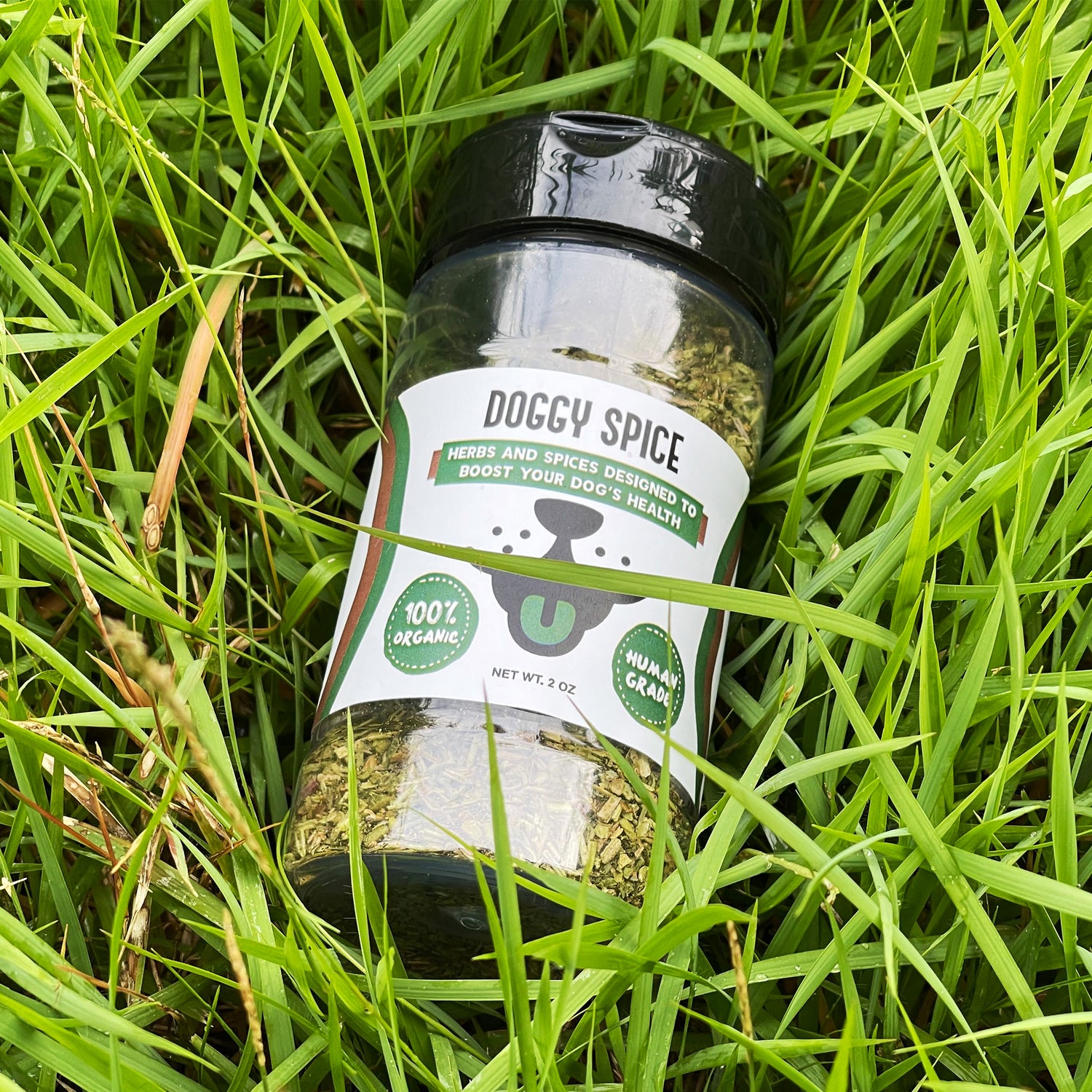
What to Do if Your Dog Has a Sensitive Stomach
Share
Introduction
Dogs, like humans, can experience gastrointestinal issues, and a sensitive stomach is one of the most common concerns among pet owners. Whether it’s caused by an allergy, an underlying health condition, or simply a reaction to certain foods, a sensitive stomach can cause discomfort for your furry companion. As a pet parent, knowing how to adjust your dog’s diet and care routine is crucial for keeping them healthy and happy.
In this guide, we’ll provide tips on how to manage your dog’s sensitive stomach through dietary adjustments and other helpful practices. 🐶
Understanding Sensitive Stomach in Dogs
A sensitive stomach in dogs can manifest in various ways, such as:
- Vomiting 🥴
- Diarrhea 💩
- Excessive gas 💨
- Bloating 🤢
- Reduced appetite 🍽️
There are many potential causes for these symptoms, including food intolerances, infections, parasites, stress, and more. Therefore, understanding the cause of your dog’s digestive issues is the first step toward managing the condition.
Common Causes of Sensitive Stomach in Dogs
- Dietary Sensitivities 🥘: Some dogs have sensitivities or allergies to certain ingredients like beef, chicken, dairy, or grains.
- Sudden Dietary Changes 🍴: A sudden change in food can upset your dog's stomach and lead to digestive issues.
- Infections or Parasites 🦠: Bacterial infections or internal parasites like worms can affect your dog's digestive system.
- Stress and Anxiety 😰: Emotional factors, such as separation anxiety or changes in routine, can cause gastrointestinal problems.
Tips for Managing a Sensitive Stomach
If your dog has a sensitive stomach, dietary adjustments can go a long way in alleviating their discomfort. Below are some key tips and strategies.
1️⃣ Introduce a Special Diet
Switching to a diet designed for dogs with sensitive stomachs is often the first step to help soothe their digestive issues.
- Easily Digestible Proteins: Look for dog food with easily digestible proteins like turkey, lamb, or salmon, which are gentler on the stomach.
- Limited Ingredients: Limited-ingredient diets (LID) are excellent for dogs with food sensitivities. These diets contain fewer ingredients to reduce the risk of allergic reactions.
- High-Quality Fiber: Fiber helps regulate digestion and can help with constipation or diarrhea. Look for foods that include pumpkin or sweet potatoes.
👉 Check out the 10 Best Fruits and Vegetables for Dogs!
2️⃣ Feed Smaller, More Frequent Meals
Instead of feeding your dog two large meals, consider dividing their food into smaller portions throughout the day. This can help reduce the burden on their digestive system.
- 3–4 Smaller Meals: Feeding your dog smaller meals throughout the day can help prevent overeating, which can contribute to digestive distress.
- Avoid Feeding Right Before or After Exercise: Allow some time for digestion before and after walks or playtime.
3️⃣ Consider a Probiotic Supplement
Probiotics are beneficial bacteria that help maintain a healthy balance in the gut. Adding probiotics to your dog's diet can improve digestion and boost the immune system. Look for probiotics specifically formulated for dogs.
- Benefits of Probiotics:
- Help restore healthy gut bacteria
- Can reduce symptoms like diarrhea or constipation
- Support overall gut health
4️⃣ Monitor for Specific Food Triggers
If your dog is experiencing gastrointestinal distress, keep track of what they eat and look for any patterns. This can help identify potential food sensitivities or allergies.
- Keep a Food Diary: Write down everything your dog eats and note when symptoms occur. This will help you and your vet identify any food triggers.
- Common Triggers: Beef, chicken, dairy, wheat, corn, and soy are common allergens for dogs.
5️⃣ Provide Digestive Aids
Digestive aids such as pumpkin or slippery elm bark can be great natural remedies for sensitive stomachs. These ingredients are gentle on the digestive system and may help soothe inflammation.
- Pumpkin: High in fiber and helps with both diarrhea and constipation.
- Slippery Elm Bark: Soothes the digestive tract and can help with nausea, vomiting, and indigestion.
6️⃣ Switch to Grain-Free Food
For some dogs, grains like corn, wheat, and soy can irritate the stomach. A grain-free diet can help reduce bloating and digestive upset.
- Benefits of Grain-Free Diets:
- Less risk of grain allergies or sensitivities
- Can help improve stool quality and reduce gas
👉 Read more about our thoughts on grain-free diets for dogs.
7️⃣ Ensure Fresh Water Availability
Dehydration can exacerbate digestive issues, so it’s essential to make sure your dog has access to fresh water at all times.
- How Water Helps:
- Keeps the digestive system hydrated
- Supports the absorption of nutrients
- Helps prevent constipation
Foods to Avoid for Dogs with Sensitive Stomachs
Certain foods can irritate a dog’s sensitive stomach and cause further discomfort. Avoid feeding your dog the following:
|
Food to Avoid |
Reason |
|
Dairy |
Dogs are often lactose intolerant. |
|
Fatty Foods |
Can cause upset stomach and diarrhea. |
|
Spicy Foods |
Can irritate the gastrointestinal system. |
|
Onions and Garlic |
Toxic to dogs, even in small amounts. |
|
Chocolate |
Contains theobromine, which is toxic to dogs. |
|
Raw Eggs |
Can lead to foodborne illnesses and biotin deficiency. |
Dogs With Sensitive Stomachs Frequently Asked Questions (FAQ) 🧐
1. How do I know if my dog has a sensitive stomach?
Signs of a sensitive stomach in dogs include vomiting, diarrhea, excessive gas, bloating, and loss of appetite. If your dog exhibits any of these symptoms consistently, it’s important to consult your veterinarian.
2. What foods are best for a dog with a sensitive stomach?
Easily digestible foods like chicken, rice, sweet potatoes, and salmon are excellent choices. Look for dog foods specifically designed for sensitive stomachs.
3. Can I give my dog human food for their sensitive stomach?
Some human foods, such as plain boiled chicken, rice, or pumpkin, can be helpful. However, avoid giving your dog spicy, fatty, or salty foods that can worsen their digestive issues.
4. How long should I try a new diet for my dog’s sensitive stomach?
It usually takes 3–4 weeks to notice improvements after switching to a new diet. However, if symptoms persist, consult your vet to rule out other underlying conditions.
5. Can stress cause digestive issues in dogs?
Yes, stress and anxiety can cause digestive upset in dogs. Changes in routine, new environments, or separation anxiety can all contribute to gastrointestinal problems.
Top Herbs and Spices to Keep Your Dog Healthy All Year 🌿
- Cleavers (Galium Aparine) - Supports lymphatic health
- Rosemary- Antioxidant-rich
- Dandelion Greens - Provides vitamins A, C, and K
- Basil - Calming properties
- Peppermint - Aids digestion
- Celery Seeds - Anti-inflammatory benefits
- Dill - Rich in antioxidants
- Oregano - Immune-supporting
- Parsley - Supports fresh breath
- Thyme - Immune booster
These herbs and spices can easily be incorporated into your dog’s meals with Doggy Spice to promote overall well-being. 🌱
Conclusion
Managing your dog’s sensitive stomach requires careful dietary adjustments and awareness of potential food triggers. By offering easily digestible food, smaller meals, and beneficial supplements like probiotics, you can improve your dog’s digestive health and comfort. Remember, every dog is unique, so always consult with your vet to determine the best course of action for your furry friend.
References
- American Kennel Club (AKC). (n.d.). "How to Choose Dog Food for Sensitive Stomachs." Retrieved from akc.org.
- PetMD. (2023). "How to Help Your Dog with a Sensitive Stomach." Retrieved from petmd.com.
- Veterinary Health Center. (2022). "Managing Digestive Issues in Dogs." Retrieved from vethealth.org.

